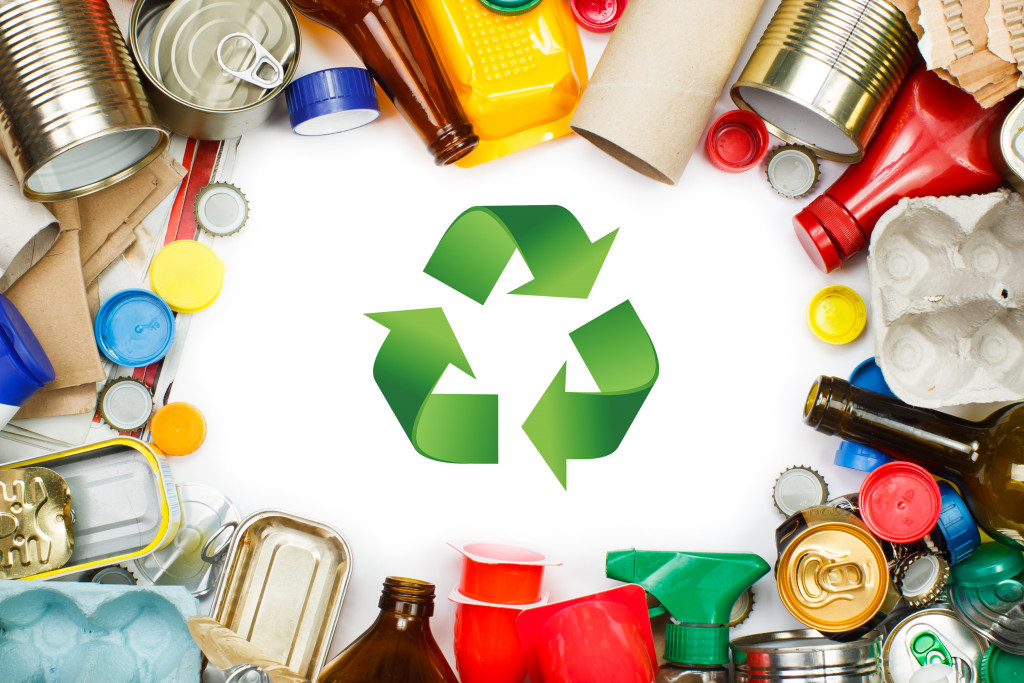There are many benefits to recycling, which is why everyone must know how to do it. When you recycle, you are helping to conserve natural resources, save energy, reduce pollution, and preserve landfill space. By recycling just one plastic bottle, you can save enough energy to light a 60-watt lightbulb for six hours!
Recycling also helps to reduce the amount of waste that goes into landfills. In the United States, we produce about 250 million tons of trash annually, and only about 30% of that trash is recycled. If we all recycled more, we could significantly reduce the waste we produce each year.
So what can you recycle from your home? Almost everything! Here are some everyday items that can get recycled:
Plastic
Plastic is one of the most commonly recycled materials, and homeowners need to recycle it. You can recycle plastic into many products, including new plastic bottles, containers, and bags. Recycling plastic helps reduce the amount of plastic in landfills and helps conserve natural resources.
Recycling these items whenever possible is vital to help reduce the amount of plastic waste produced yearly. Every time you encounter plastic, you should consider adding a separate waste bin for them. The strategy ensures you don’t have to segregate the material from the rest of your household waste. It might be challenging to keep up, but you can make it a habit that ensures you are responsible for helping the environment remain healthy. Fortunately, plastic recycling is among the most stable and profitable ventures in the recycling industry.
Clothes
Clothes are another common item that people can recycle. Most clothes are from natural fibers, such as cotton and wool, which can get recycled into new clothing. Synthetic fibers, such as polyester and nylon, can be recycled into new clothing or other products.
Recycling clothes helps to conserve resources and reduce pollution. Recycling clothes takes less energy than manufacturing new clothing from scratch. Additionally, recycling clothes reduces the amount of textile waste that goes into landfills.
To recycle your clothes, you can donate them to a local thrift store or send them to a textile recycling facility. You can also upcycle your clothes into new items, such as bags or rugs.
Paper

Paper is a common household item that people often use daily and repetitively. Paper can get recycled into new paper products, such as newspapers, books, and cardboard boxes. Recycling paper conserves resources and reduces pollution. Recycling paper takes less energy than manufacturing new paper from scratch.
To recycle your paper, you can partner with your local recycling program. You can also donate it to a local school or library. Paper is one of the most common household items in your home. While most are challenging to recycle, some, like egg cartons, can be put in the green bin.
Cooking Oil
Cooking oil is something that people might not know can get recycled. People usually throw it away. Cooking oil can be recycled into new cooking oil, biodiesel fuel, or soap.
Recycling cooking oil helps to conserve resources and reduce pollution. Recycling cooking oil takes less energy than manufacturing new cooking oil from scratch. Additionally, recycling cooking oil reduces the amount of cooking oil waste that goes into landfills.
However, you might not know where to take it for recycling. Even moving it can be challenging since it is a liquid substance. You can partner with a company that provides used cooking oil recycling services to ensure your waste remains useful. They will pick up your used cooking oil and recycle it into new products.
Glass
Glass is a recyclable material because it can be melted down and reused to make new glass products. Recycling glass saves energy and resources because recycling takes less energy than creating new glass from scratch. Additionally, recycling glass reduces the amount of waste that goes into landfills. Not everyone knows that nearly all glasses are recyclable, making them a perfect waste material to start your eco-friendly efforts.
To recycle glass, you can take it to your local recycling center. You can also recycle it at home using a glass recycling bin. However, you must be responsible for handling the material. Shards and cracks could lead to cuts and bruises. Recycling the glass through a professional to avoid accidents would be better.
Electronic Devices
Electronic devices are a common sight in most homes. They can include anything from laptops and smartphones to gaming consoles and digital cameras. While people might not think about recycling them, electronic devices can get recycled.
To recycle your electronics, you can take them to your local recycling center or e-waste facility. You can also send them back to the manufacturer for recycling. However, you must ensure you remove all personal data from the device before sending it off.
Conclusion
These are some of the everyday items people can recycle from their homes. Recycling helps to conserve resources and reduce pollution. So, next time you’re about to throw something away, think about whether or not you can recycle it.

